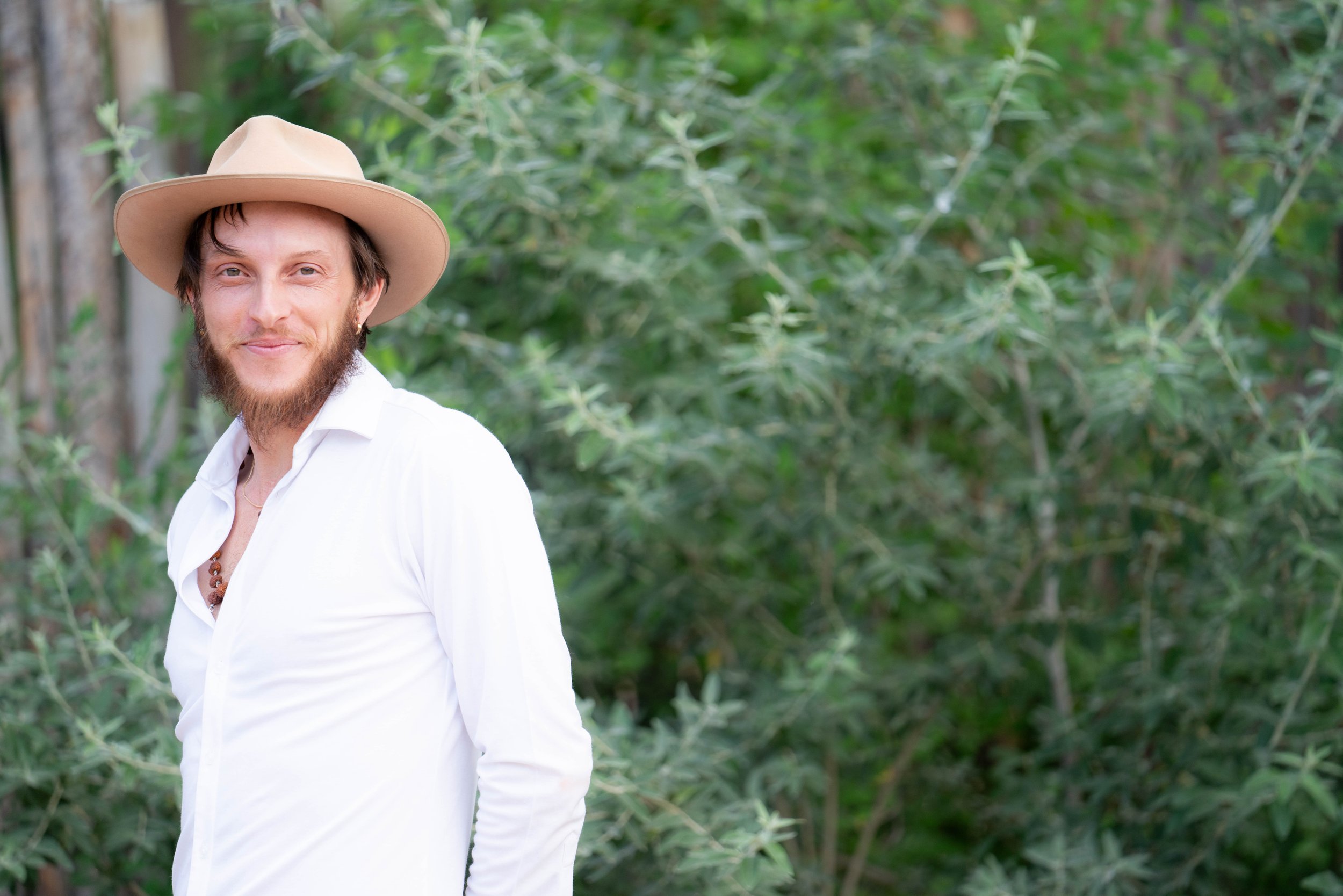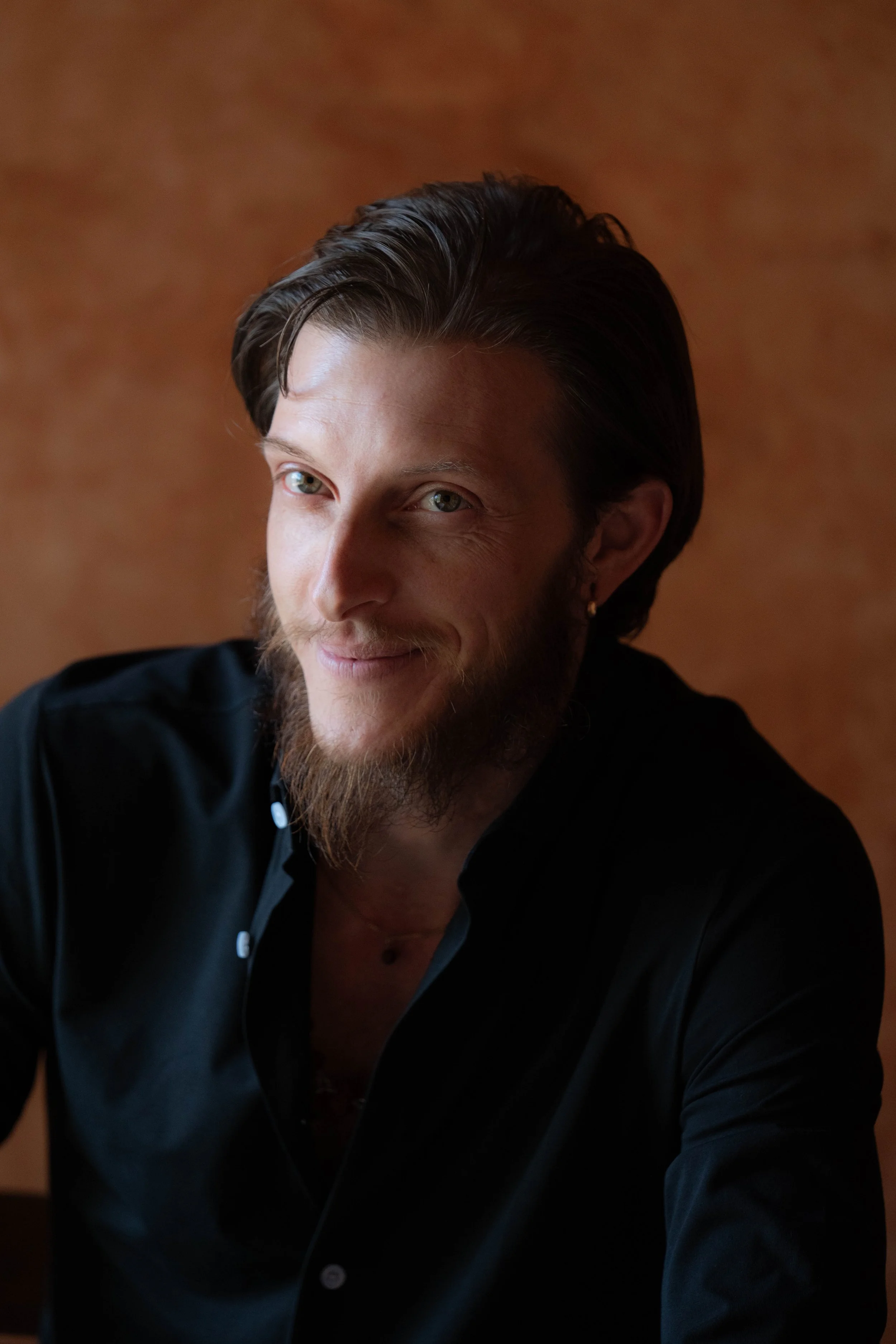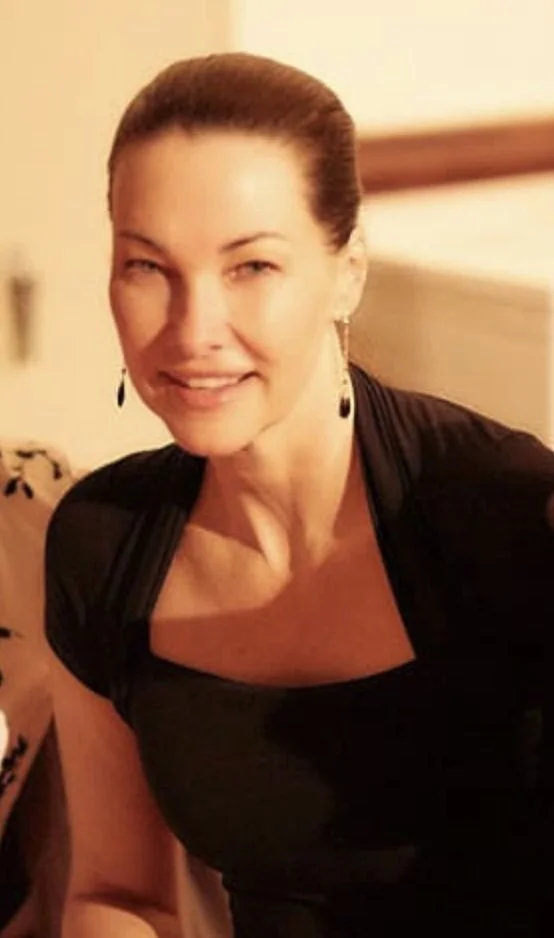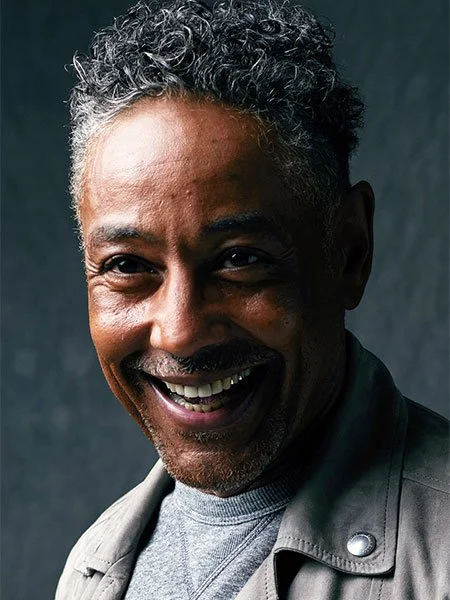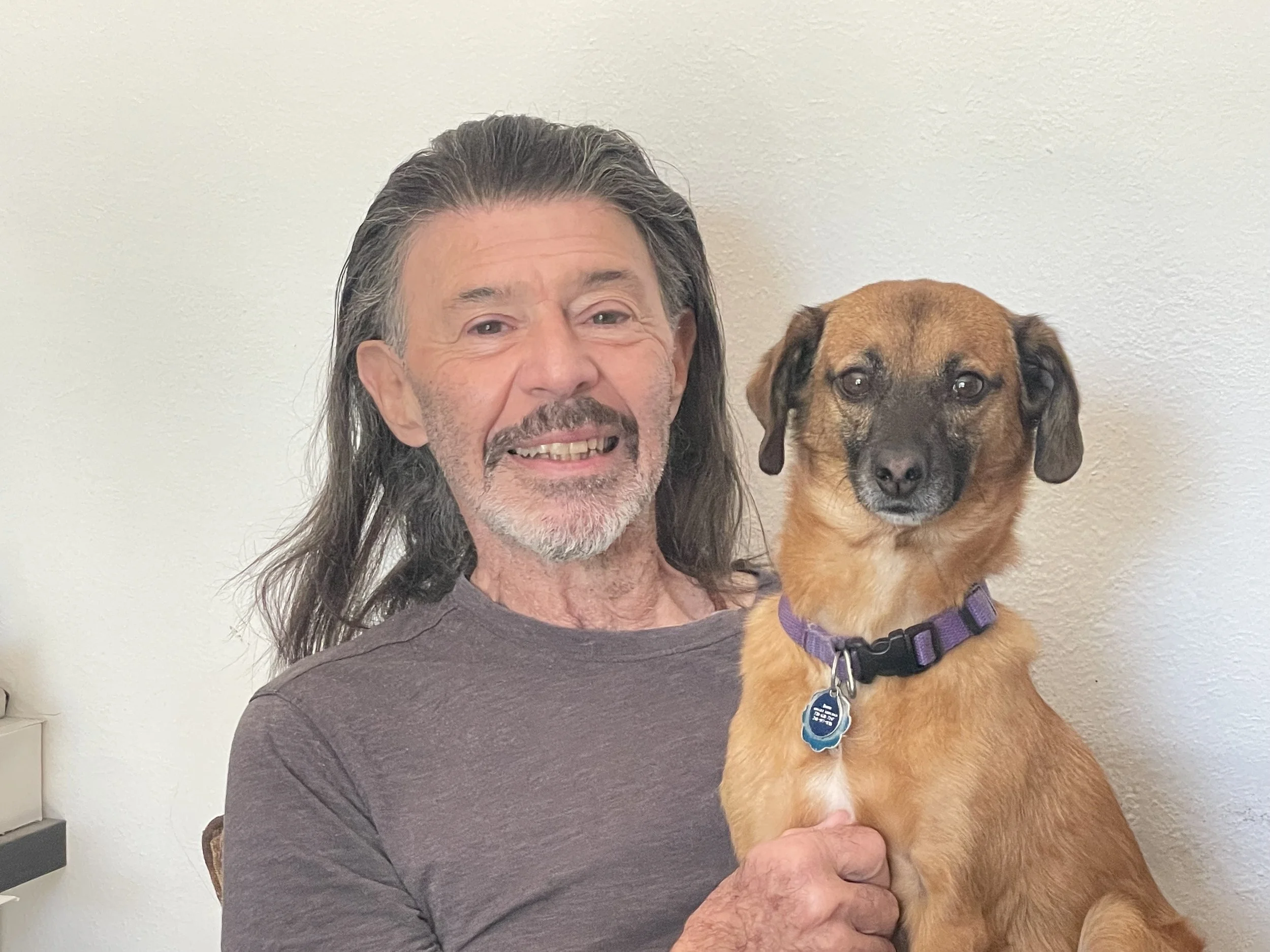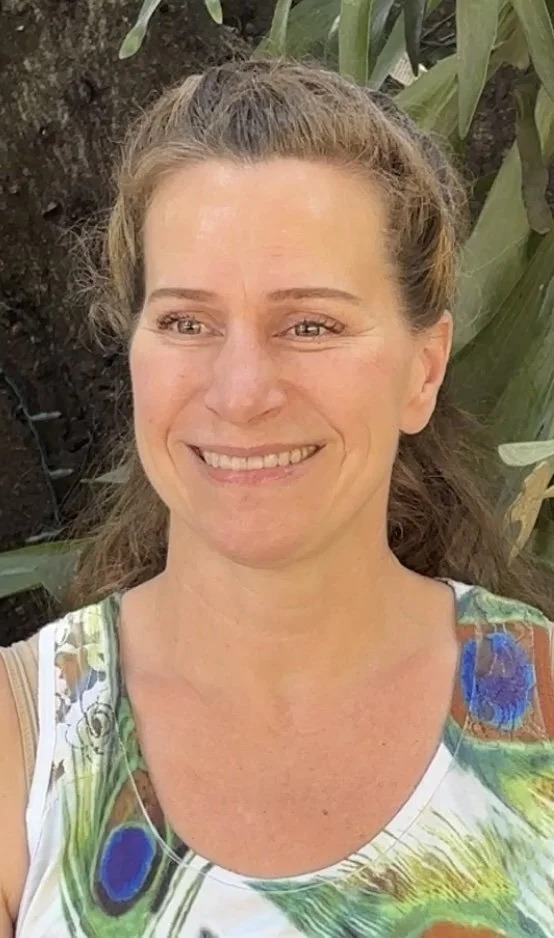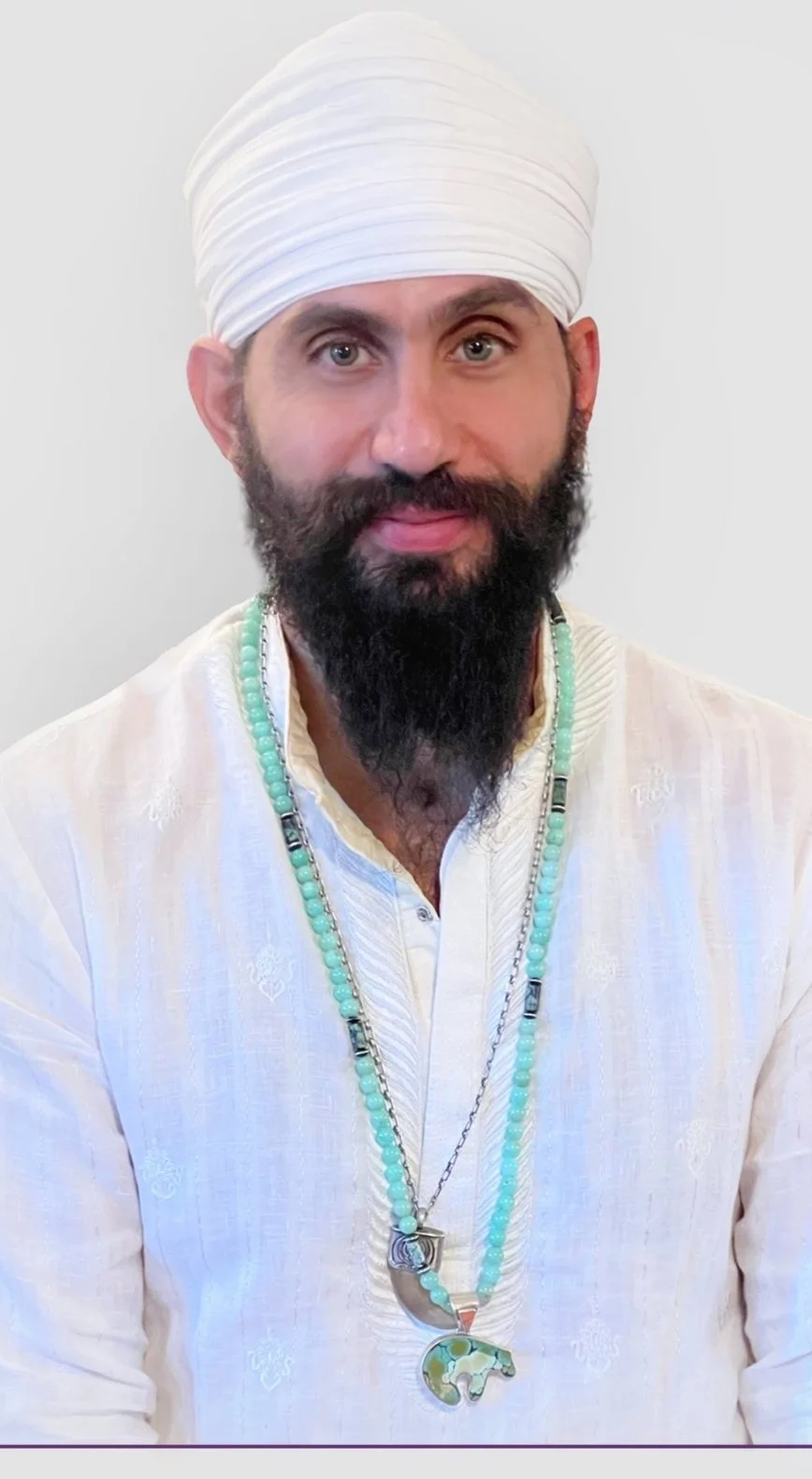द्विविधास्तु खलु भिषजो भवनत्यग्निवेश प्राणानामेके-भिसरा हन्तारो रोगाणां रोगाणामेके-भिसरा हन्तारः प्राणानामिति॥
There are two types of Physicians:
One follows the disease and destroys the Prāṇa, while the other follows the Prāṇa and destroys disease.
Caraka Saṃhitā Sū 29:5
About Kashyapa
We all suffer—and it is in suffering that we glimpse something of the truth of things...
For years, I sought to escape these truths through fleeting endeavors and distractions: quick fixes, thrills and peak experiences, health fads, self-help doctrines. Yet, each path only led to deeper disillusionment. Finally, I found myself brought to my knees—empty, folded, humbled. It was in hollowing stillness that I realized: health and happiness are not conquests but reconciliations. Harmony with the core of our being is the only rhythm that can ever pulse life into some sort of balance.
And then, somehow, acting in a script I don’t think I myself ever wrote, I found myself living in India…
In 2008, I stepped into a land where wisdom is not confined to books but woven into the fabric of life. Four years of monastic living taught me to listen—not just to the words of ancient teachings but to the silence between them, which is where the essence of Ayurveda resides. These lessons, born from simplicity and discipline, became the foundation of a journey that would extend beyond my own inquiries into a vocation of service.
Committing to a profession in Ayurveda and medicine, I was privileged to train in the classical Gurukula tradition under the mentorship of Vaidyas Shreerang and Varsha Galgali at Arogyasarathi Cikitsalaya in Pune, India. Beyond immersion in clinical practice, Panchakarma and Ayurvedic surgery, their guidance breathed life into the concepts of millennia-old texts, offering invaluable insights into Ayurveda as both a comprehensive medical system and a way of life. They showed me that to honor this tradition is to remain both reverent and resolute, bridging timeless wisdom with the evolving needs and circumstances of modern life.
Apart from my traditional Ayurvedic training, I pursued formal studies in Sanskrit at Deccan College, specialized in Kerala-style Panchakarma techniques under the Thaikkatu Moos lineage, and trained in disciplines such as Kalaripayattu, Naturopathy, and Emergency Medicine. These experiences have expanded my clinical toolkit and perspectives while keeping my work firmly rooted in Ayurveda’s classical principles and enduring philosophy.
In 2016, I founded Arogya in New Mexico as a comprehensive clinical and Panchakarma practice, dedicated to bringing the timeless therapeutics of Ayurveda into the contemporary American landscape. What began as a full-time brick-and-mortar practice with a large team has evolved into a combination of online consulting and immersive Panchakarma retreats. Through these efforts, I have had the privilege of assisting thousands of individuals on their path to health and vitality. This work has also led to the creation of UpayaVeda, which delivers authentic Ayurvedic medicines to the West, and the Samudra Ayurvedic Physician Program, where we nurture future Ayurvedic Physicians to carry this tradition forward with integrity for generations to come.
Having overseen more than 400 Panchakarmas and supported over 2,000 individuals in clinical practice, I have witnessed Ayurveda’s remarkable ability to unite the microcosm of the individual with the macrocosm of life itself. As Arogya continues to evolve, my focus remains steadfast: to root Ayurveda deeply in the West and into the future—not by diluting its truths but by illuminating their enduring practicality and profound relevance.
Arogya exists as a reminder that suffering need not be an end, but a doorway; that the breath we take is not ours alone, but a shared inheritance; and that every moment holds the seed of transformation. Every consultation is a dialogue between timeless truths and present needs. Every retreat is a sanctuary where ancient wisdom rekindles modern lives. And every teaching is an act of service to the rhythm that connects all things.
I invite you to join me on this journey—not to chase fleeting answers, but to seek harmony with the essence of what it means to truly be alive.
Classical Training in India
Trained in the Gurukula tradition with Vaidyas Shreerang and Varsha Galgali at Arogyasarathi Cikitsalaya, Pune, where texts meet the realities of clinical practice.
Study included Sanskrit at Deccan College, Kerala-style Panchakarma, Kalaripayattu, Naturopathy, and Emergency Medicine, expanding tools while remaining rooted in classical principles.
Tradition of Practice
My MentorsVaidya Shreerang Galgali
Vaidya Shreerang Galgali MD Ayu, PhD is a distinguished Ayurvedic physician based in Pune, Maharashtra, India, where he has served over 10,000 patients during his 18-year clinical practice specializing in Ayurveda and Pancha Karma. As the founder and Board Director of the renowned Punarvasu Cikitsalaya Ayurvedic Hospital, he also leads its Academic Wing's prestigious Post-Graduate Program for Ayurvedic Physicians. His extensive academic credentials include a BAMS from the University of Pune, a first-class MD from GAU Jamnagar, an MA in Sanskrit, and a PhD in Ayurveda. Beyond his clinical work, Vaidya Shreerang has contributed significantly to cancer research, delivered presentations at national and international medical conferences, and served as a Guest Lecturer and Examiner at both GAU and Maharashtra University of Health Sciences.
Vaidya Varsha Galgali
Vaidya Varsha Galgali, a gold medalist from Babasaheb Abedkar Marathwada University where she completed her BAMS, went on to graduate first in her class while earning her MD from the prestigious Gujarat Ayurved University in Jamnagar. With 19 years of clinical experience serving thousands of patients, she specializes in Pancha Karma procedures while maintaining a significant academic presence. Beyond her thriving practice, she has served as a lecturer at Wagholi college, currently teaches at Ayurveda College Akurdi, and has spent over a decade as an instructor for the MUHS Post Graduate Diploma Course in Pancha Karma at Punarvasu Ayurveda Prabodhini. Her research contributions include three and a half years in cancer research at Wagholi, two years of post-graduate research at GUA Jamnagar, and ongoing work as a research guide for post-graduate students.
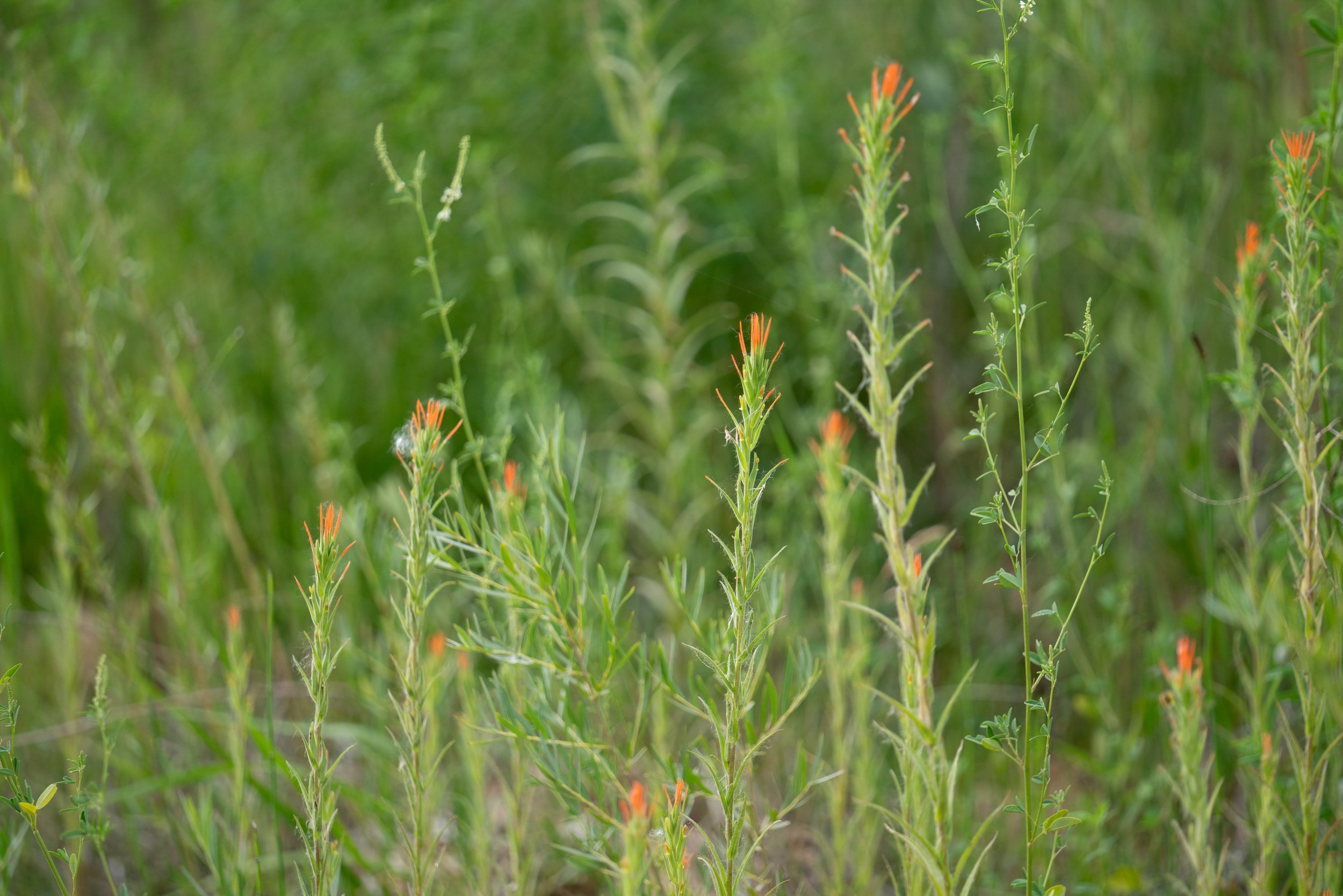
“Humanity’s oldest continuously practiced medical system, Ayurveda is a living science that speaks through the language of nature’s qualities.”
On Ayurveda
Ayurveda stands as humanity's oldest continuously practiced system of medicine. For more than five millennia, this profound science of life has illuminated the path to health and wholeness, its efficacy proven through countless generations of clinical practice across cultures and continents.
At its heart, Ayurveda embodies a timeless truth: it is "the knowledge of what brings benefit and harm, happiness and suffering to life itself." (Caraka Samhita). This ancient wisdom speaks not in rigid absolutes but in the dynamic language of nature—a vocabulary of elements and qualities that dance through all of existence.
Through this living lens, we perceive the unique symphony of each individual's constitution. Like musicians attuned to subtle harmonies, we learn to recognize the interplay of qualities—hot and cold, heavy and light, wet and dry—that orchestrate our wellbeing. This understanding transcends the limitations of trendy diets, rigid ideologies, or isolated lab results, revealing instead the deeper currents that shape our health.
Ayurveda teaches us a fundamental truth: life inherently seeks to thrive. Our bodies carry the innate intelligence for health and longevity, much as a seed contains the blueprint of a mighty tree. Yet this potential can only flourish in the soil of harmony—in right relationship with our food, our daily rhythms, our loved ones, our work, the natural world, and perhaps most crucially, ourselves.
When these sacred relationships fall out of tune, disharmony manifests as disease. The path to healing, therefore, lies not in merely suppressing symptoms but in restoring these essential harmonies. This is where Ayurveda's profound practical wisdom shines—through its vast pharmacopeia of herbal medicines, its sophisticated bodywork therapies, its seasonal cleansing protocols, and its daily practices for optimal living. Each of these tools serves a single purpose: to rekindle our digestive fire, enliven our body's vital fluids, and awaken our innate capacity for vibrant health.
In this way, Ayurveda offers not just a system of medicine, but a pathway to living in deep alignment with the wisdom of nature itself.
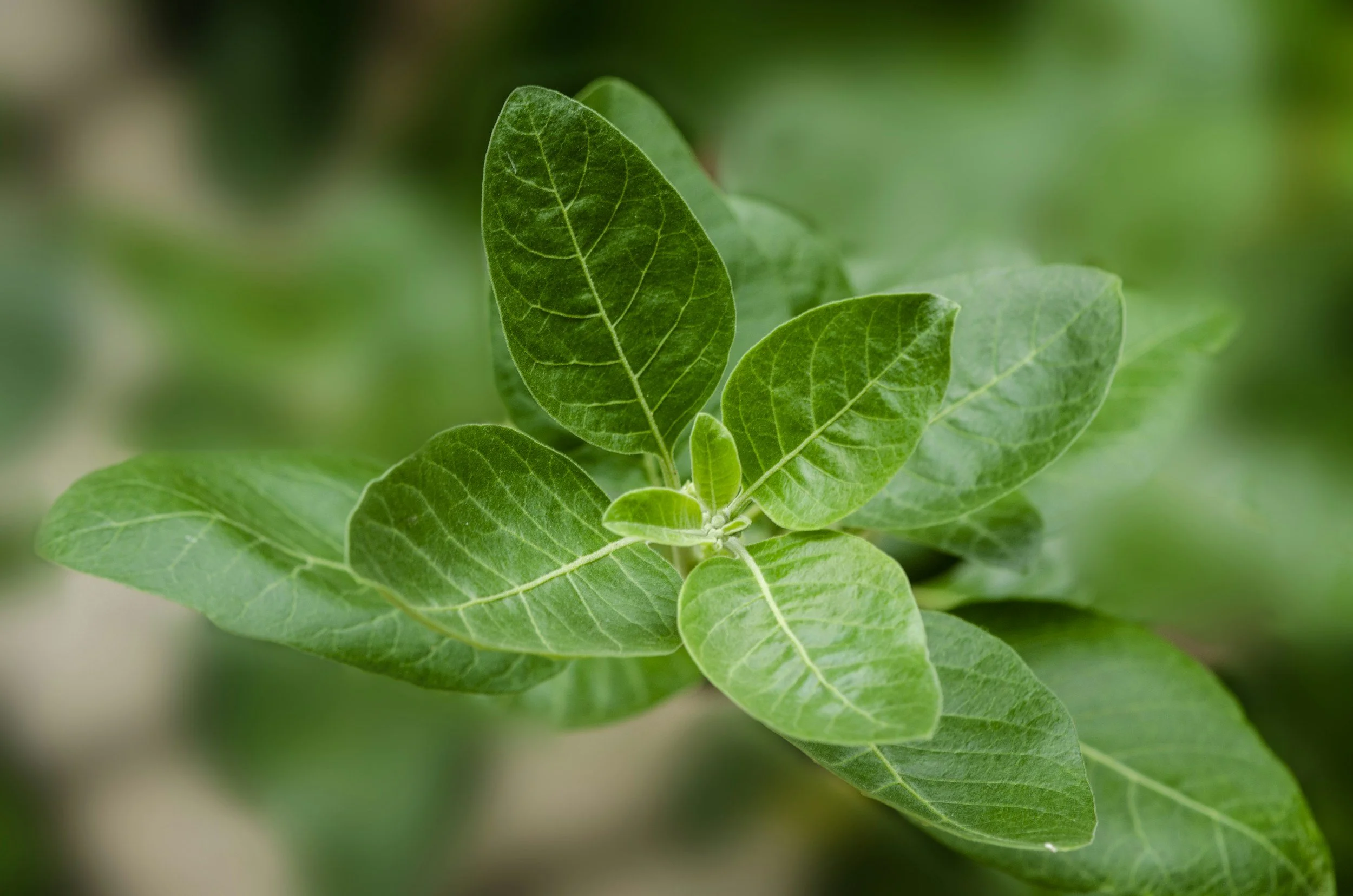
Today’s Practice
Arogya Health focuses on online consulting and immersive Panchakarma retreats—bridging timeless therapeutics with modern life.
Ayurveda Consultations
2000+
Panchakarmas Overseen
400+
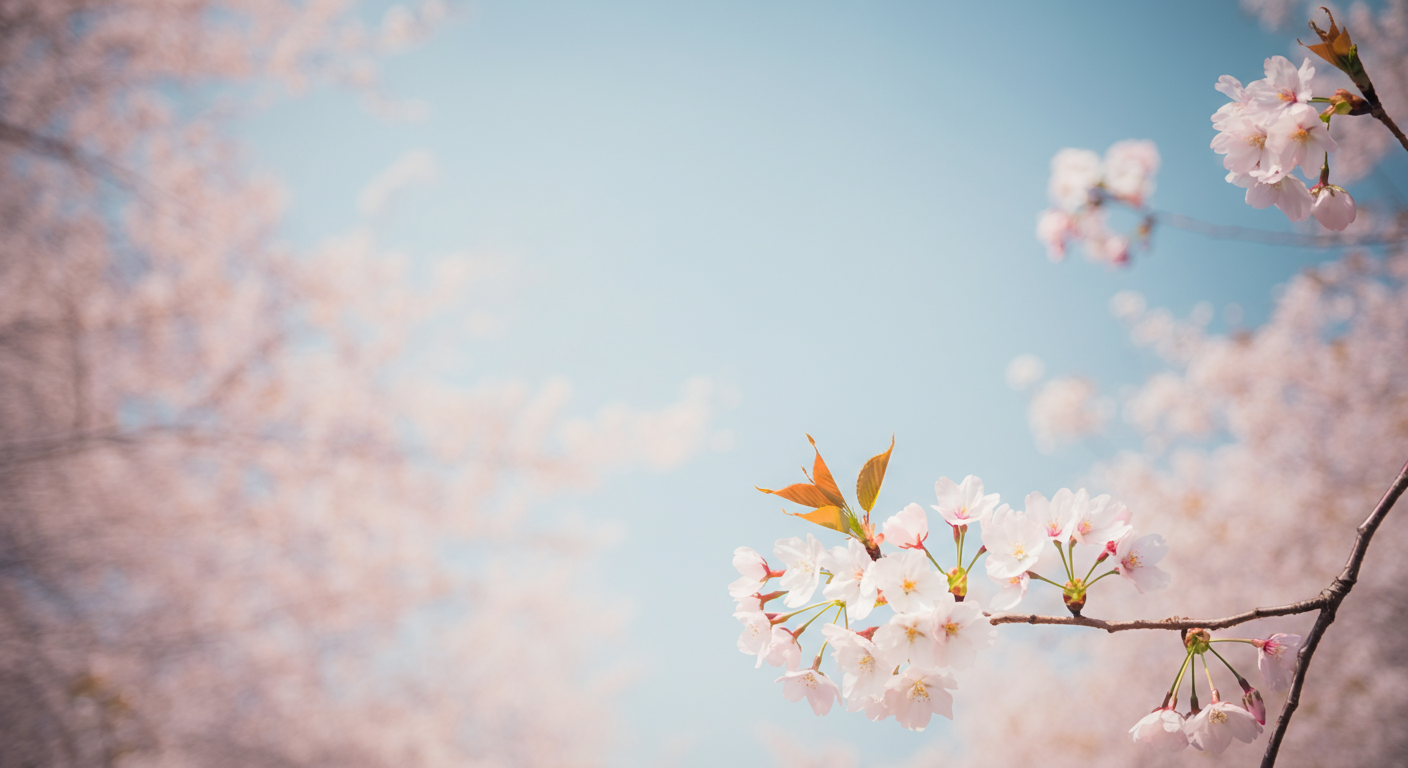
Client Experiences
